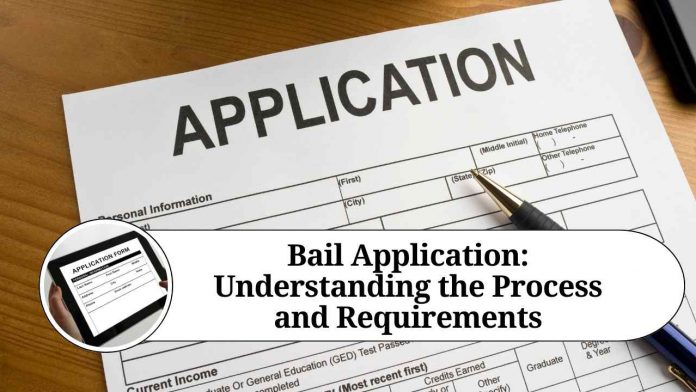When a person is accused of a crime, they may be arrested and held in custody until their trial. However, in many cases, it is possible for the accused to be released on bail. Bail is a legal agreement in which the accused person is released from custody in exchange for a promise to appear in court on a specific date. If you or a loved one is facing criminal charges, it is important to understand the bail application process and requirements.
What is Bail?
Bail is a legal agreement that allows a person accused of a crime to be released from custody before their trial. The purpose of bail is to ensure that the accused appears in court on the scheduled date. When a person is granted bail, they are required to provide some form of collateral, such as money or property, to the court as a guarantee that they will appear in court as required. If the accused fails to appear in court, the court may forfeit the collateral and issue a warrant for their arrest.
The Bail Application Process
The bail application process can vary depending on the jurisdiction and the specific circumstances of the case. In general, the accused or their legal representative will file a bail application with the court. The application will typically include information about the accused, such as their name, address, and employment status, as well as the charges they are facing and any previous criminal history. The court will consider several factors when deciding whether to grant bail, including:
- The severity of the charges
- The accused’s criminal history
- The accused’s ties to the community
- The likelihood that the accused will flee if released on bail
- The risk that the accused will commit additional crimes if released on bail
The court may also consider any other relevant factors, such as the accused’s mental or physical health, the strength of the prosecution’s case, and the potential impact on the victim or the community.
Requirements for Bail
In order to be granted bail, the accused must meet certain requirements. These requirements may include:
- Providing collateral, such as money or property, to the court
- Surrendering their passport or other travel documents
- Reporting regularly to a designated person or agency, such as a probation officer
- Obeying a curfew or other restrictions on their movements
- Refraining from contact with certain individuals or groups, such as witnesses or co-accused individuals
- Attending drug or alcohol treatment or counseling programs
Failure to comply with any of these requirements may result in the revocation of bail and the accused being returned to custody.
Conclusion
The bail application process can be complex and intimidating, but it is an important part of the criminal justice system. If you or a loved one is facing criminal charges, it is important to understand your rights and the requirements for bail. A qualified criminal defense lawyer can help you navigate the process and increase your chances of being granted bail. Remember that bail is not a guarantee of freedom, but rather a privilege that comes with responsibilities and obligations.
Other Related Blogs: Section 144B Income Tax Act
Frequently Asked Questions (FAQs)
Q. What is bail?
Bail is a legal process in which an accused is released from custody before their trial in exchange for a promise to appear in court on a specific date. The accused may be required to provide some form of collateral, such as money or property, to ensure that they will appear in court as required.
Q. Who is eligible for bail?
In general, anyone who has been arrested and charged with a crime is eligible for bail. However, the decision to grant bail is ultimately up to the court, which will consider a variety of factors, such as the severity of the charges, the accused’s criminal history, and the likelihood that the accused will flee if released on bail.
Q. How do I apply for bail?
You or your legal representative can file a bail application with the court. The application will include information about you, such as your name, address, and employment status, as well as the charges you are facing and any previous criminal history.
Q. What happens during a bail hearing?
During a bail hearing, the court will consider whether you should be granted bail. The court will consider several factors, such as the severity of the charges, your criminal history, and the likelihood that you will flee if released on bail.
Q. What conditions may be imposed if I am granted bail?
If you are granted bail, the court may impose certain conditions that you must follow in order to remain free. These conditions may include surrendering your passport or other travel documents, reporting regularly to a designated person or agency, or refraining from contact with certain individuals or groups.
Q. What happens if I violate the conditions of my bail?
If you violate the conditions of your bail, the court may revoke your bail and issue a warrant for your arrest. Additionally, any collateral that you provided to the court may be forfeited.
Q. Can I get my bail money back?
If you provided money as collateral for your bail, you may be able to get it back after your trial is over and you have fulfilled all of the conditions of your bail. However, this will depend on the specific circumstances of your case and the jurisdiction in which you are being tried.
Q. Can I appeal a decision on my bail application?
If your bail application is denied, you may be able to appeal the decision to a higher court. However, the rules and procedures for appealing a bail decision can vary depending on the jurisdiction and the circumstances of your case.




















